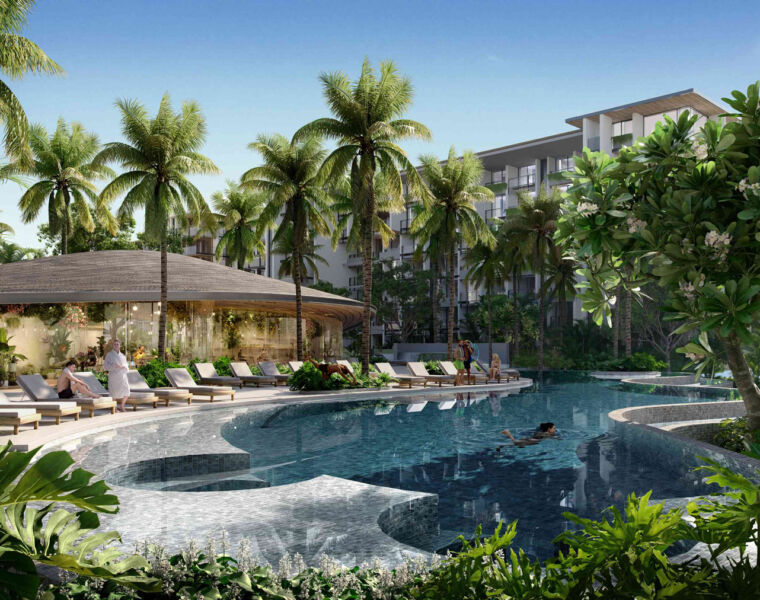
The AfrAsia Bank Africa Wealth Report 2019 has revealed South Africa is still the continent’s wealthiest country with total wealth at US$649 billion.
The total wealth held in Africa rose by a modest 14% over the past 10 years (2008-2018) with three of the largest economies on the continent, South Africa, Egypt and Nigeria performing poorly on most economic indicators according to the AfrAsia Africa Wealth Report 2019, released today by Mauritius based AfrAsia Bank. The total wealth refers to private wealth held by all the individuals living in each country and includes all assets (property, cash, equities, business interests) less any liabilities.
Despite its period of increased uncertainty which defined the administration at that time, South Africa is still the continent’s wealthiest country with total wealth at US$649 billion, followed by Egypt with less than half of the total wealth of the leader. Nigeria, Morocco and Kenya complete the quintet of nations at the top of the table.
The report projects a 35% rise in total private wealth held on the continent over the next 10 years reaching US$3.0 trillion by 2028. Mauritius, Ghana, Rwanda and Uganda are set to emerge as the strongest performing wealth markets in Africa during this period.
Currently, the total wealth held on the continent amounts to US$2.2 trillion which is dwarfed in comparison to US$204 trillion held globally.
While SA, Tanzania and Ivory Coast are likely to continue growing moderately at some 30%, Morocco, Egypt and Nigeria are expected to struggle over the forecast period with wealth growth dipping to 10% to 20%.
While Mauritius only features at No 11 on the list of wealthiest African countries, Mauritians are the wealthiest individuals on the continent with an average wealth of US$31,000 per person, followed by South Africans with an average wealth of US$11,500 per person.
SA’s performance over the past 10 years has been moderate with total private wealth held by people living in the country rising by 13% from US$575 billion in 2008 to US$649 billion in 2018. Several factors contributed to SA’s lacklustre performance during the past decade including a declining currency which is now seen inching closer to R15, a sluggish local property market and ongoing migration of wealthy people out of the country.
The recent wave of xenophobia and violent crimes are also likely to cast gloom and dent the economy further.
Even though the front runners are showing economic fatigue, emerging economies like Mauritius are more than balancing the continent’s outlook. During the past decade, Mauritius has been the best performer in Africa and the second-fastest-growing wealth market worldwide after China. The positive attributes for this strong growth include safety. Mauritius was recently rated by New World Wealth as the safest country in Africa along with Namibia. and Botswana. Notably, safety is one of the key drivers of wealth growth in a country.
Alongside safety, a thriving and growing financial services sector, rising residential and commercial property prices and strong HNWI growth contributed to Mauritius’ meteoric rise. Mauritius today is home to around 4,400 HNWIs, compared to 1,800 HNWIs ten years ago. The island nation also ranked 1st in Africa and 20th worldwide in the World Bank’s 2019 Doing Business Report.
As part of this year’s report, the continent’s wealthiest cities were also identified and ranked. They include:
Johannesburg: The total wealth held in the city amounts to US$248 billion. Most of Johannesburg’s wealth is concentrated in Sandton. Exclusive suburbs in the city include Hyde Park, Sandhurst, Houghton and Westcliff. Major sectors in Joburg include financial services (banks), professional services (law firms, consultancies), telecoms and basic materials.
Cape Town: The total wealth held in the city amounts to US$133 billion and is home to Africa’s most exclusive and expensive suburbs such as Clifton, Bishopscourt, Camps Bay and Bantry Bay. The mother city is also a hotspot for wealthy second homeowners from around the world. Major sectors there include real estate, financial services (fund management), retail and tourism.
Cairo: The total wealth held in the city amounts to US$129 billion and is home to more billionaires than any other African city. Major sectors include financial services, telecoms, construction and basic materials.
Lagos: The largest city in Africa, in terms of population and GDP (but not in terms of wealth), the city holds US$96 billion in total wealth. Affluent parts of Lagos include: Ikoyi and Victoria Island. Major sectors in the city include basic materials, oil & gas, transport and financial services.
Durban & Umhlanga: The total wealth held in the city amounts to US$54 billion. This figure includes wealth held in Durban, Umhlanga, La Lucia and Ballito. Notably, Umhlanga and Ballito are two of the fastest-growing areas in SA, in terms of wealth growth over the past 10 years. Major sectors include financial services, healthcare, real estate, diversified and transport.
Nairobi: The economic hub of East Africa and one of the fastest-growing cities in the world. Total wealth held in the city amounts to US$49 billion. Affluent parts of Nairobi include, Runda Estate, Lavington, Kitisuru, Karen and Muthaiga. Major industries include financial services, real estate, tourism, include clothing, textiles, processed foods, beverages and cigarettes.
While it hasn’t been all good news for the property sector, the appeal of brick and mortar for a number of high net-worth individuals is cast in stone. Residential property normally constitutes between 25% and 30% of the net assets of an average African HNWI. Popular properties for them include luxury apartments, beachfront villas and homes in residential estates. The most expensive cities for residential property in Africa are Cape Town, Umhlanga, Sandton, Nairobi, Marrakesh, Tangier and Casablanca.
For more articles on wealth, finance and property click here.




You must be logged in to post a comment.